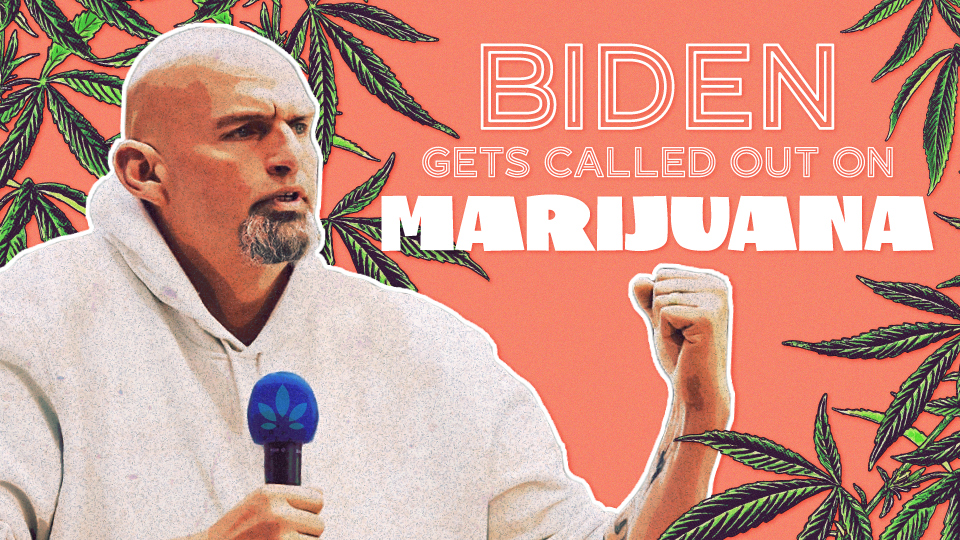The U.S. border agency is looking to buy THC detectors, Pennsylvania Senate candidate John Fetterman called out Biden for his cannabis legalization inaction, and a new study found that cannabis use increases after legalization.
Let’s dive into this week’s cannanews.
U.S. Customs and Border Protection Looking for ‘THC Detectors’
A recent notice from U.S. Customs and Border Protection (CBP) revealed the agency is looking to buy portable marijuana analyzers. The notice specified that the devices need to be able to tell if a cannabis product contains over 0.3% THC.
Based on the specifications given by CBP, the devices will most likely be used to differentiate between hemp and cannabis. However, the CBP itself has not revealed why it’s looking to purchase the analyzers.
CBP agents have increasingly struggled to discern between hemp and cannabis since the passage of the 2018 Farm Bill, which legalized commercial-use hemp. To give you an idea of just how bad this issue is, let’s take a look at Texas’ cannabis prosecutions numbers:
- Since the passage of the Farm Bill, low-level cannabis arrests decreased by more than 50% in Texas.
- Between 2018 and 2019 alone, cannabis possession arrests dropped by 30% in the state.
CBP’s notice comes at a time when large illegal cannabis seizures at the border are at an all-time low. In fact, 69% of marijuana seizures at the border from 2016 to 2019 were for quantities less than 1 ounce. These figures have led many to ask if a substantial financial investment into expensive tech is really necessary.
What do you think of CBP’s request for THC detection devices? Do you believe the move to be a wise investment? Tell us what you think in the comments!
Why You Should Get Your Medical Marijuana Card
Veriheal has satisfied millions of patients nationwide by giving them access to these benefits
- Larger purchase limits
- Peace of mind
- Enhanced legal protection
- Access to higher potency strains
- Save up to 25% on cannabis purchases
- Skip the line at the dispensary
Pennsylvania Senate Hopeful Fetterman Pushes Biden on Cannabis
President Joe Biden continues to face pressure from his colleagues calling on him to legalize cannabis. This time, the pressure comes from U.S. Senate hopeful and current Pennsylvania Lt. Gov. John Fetterman. Ahead of his Labor Day Pittsburgh visit, Fetterman called on Biden to “…use his executive authority to begin descheduling marijuana.” According to a Fetterman spokesperson, the Senate candidate plans to continue pushing the issue with Biden on the day of the visit itself.
White House Press Secretary Karine Jean-Pierre was asked about Letterman’s comments during a press briefing with reporters. Jean Pierre reiterated that “the president supports leaving decisions regarding legalization for recreational use up to the state.” However, she did share the president is open to rescheduling cannabis to open the door for more research.
To date, the president’s only significant action on cannabis has been commuting the sentences of 75 non-violent drug offenders. With recent polls showing that roughly two-thirds of Americans support legalization, however, it is clear that more can and should be done.
What do you think of Senate candidate John Fetterman’s statement to the president? Let us know in the comments!
Study Finds Cannabis Use Increases Post-Legalization
Lastly, a new study published in the journal Addiction has found that legalizing recreational cannabis leads to more cannabis use. The study was conducted by a joint team of researchers from the University of Colorado Boulder and the Minnesota Center for Twin and Family research.
The team interviewed 3,421 total participants about their cannabis usage pre-legalization (<2014) and post-legalization (>2014). For Colorado participants, “post-legalization” refers to recreational legalization. For Minnesota participants, “post-legalization” refers to medical-only legalization.
Researchers found that cannabis usage among the participants increased by 24% post-legalization. Interestingly enough, the study also included 111 pairs of identical twins. Of these twins, those who moved/lived in recreational legal states saw a 20% increase in their cannabis use. Researchers stated that since these twins share so many genetic similarities, their percentage is likely a more accurate estimate of just how legalization affects cannabis use.
What do you think of this study? Share your thoughts in the comments!
Author, Share & Comments
















